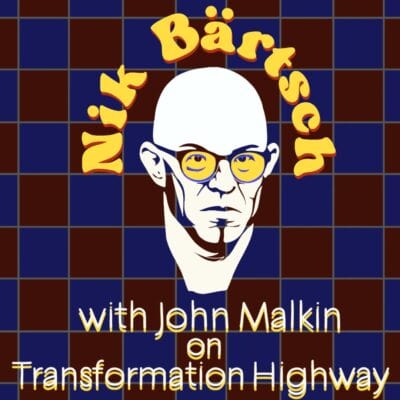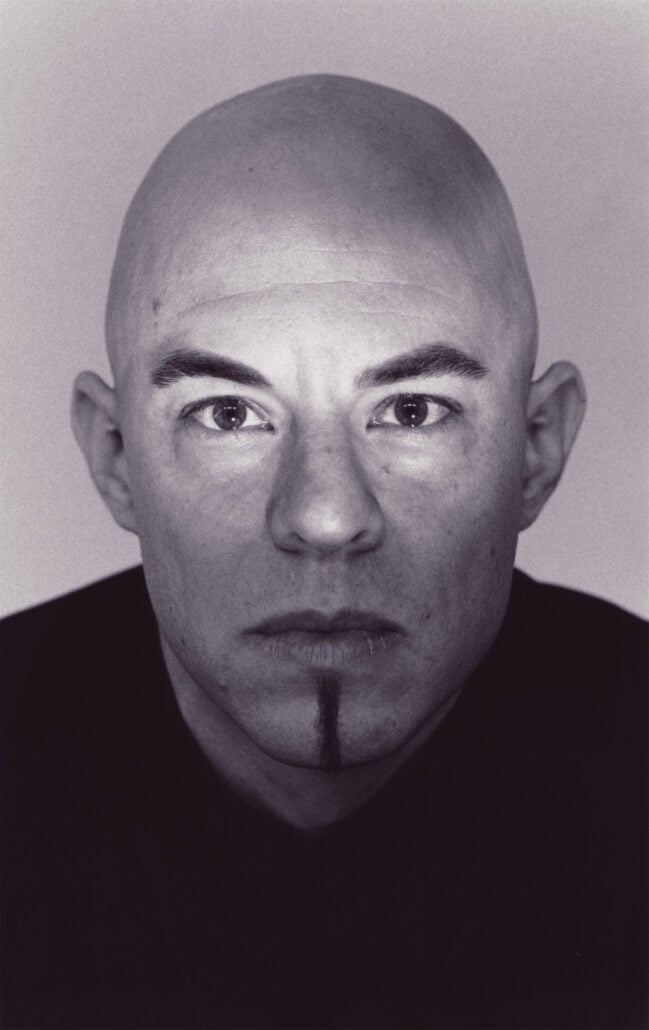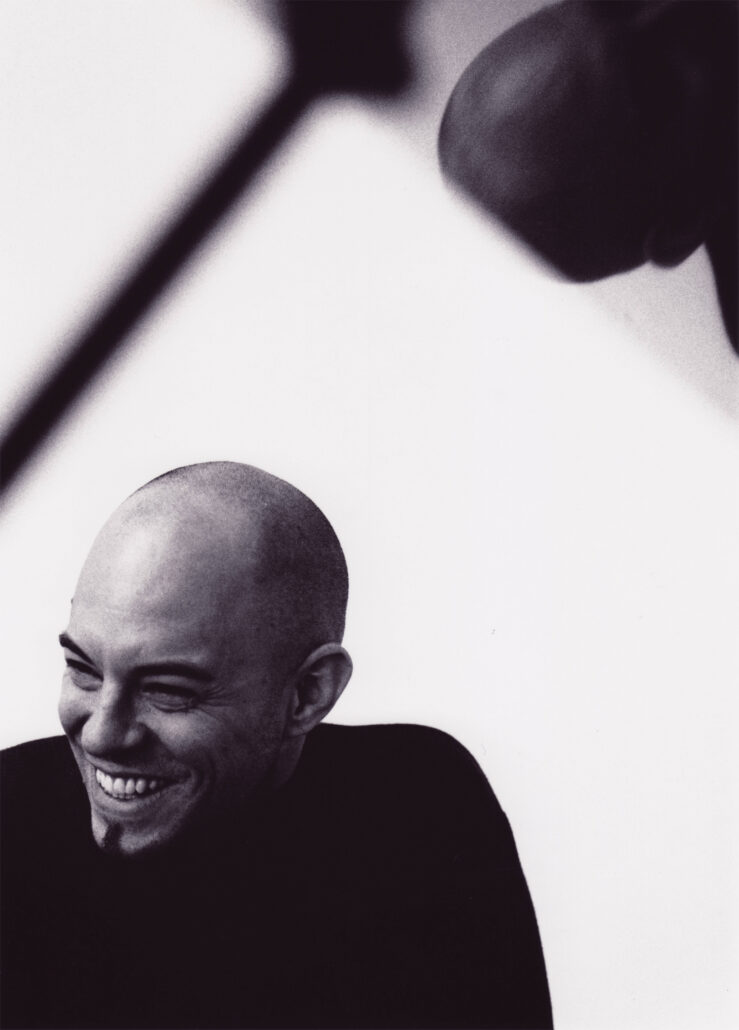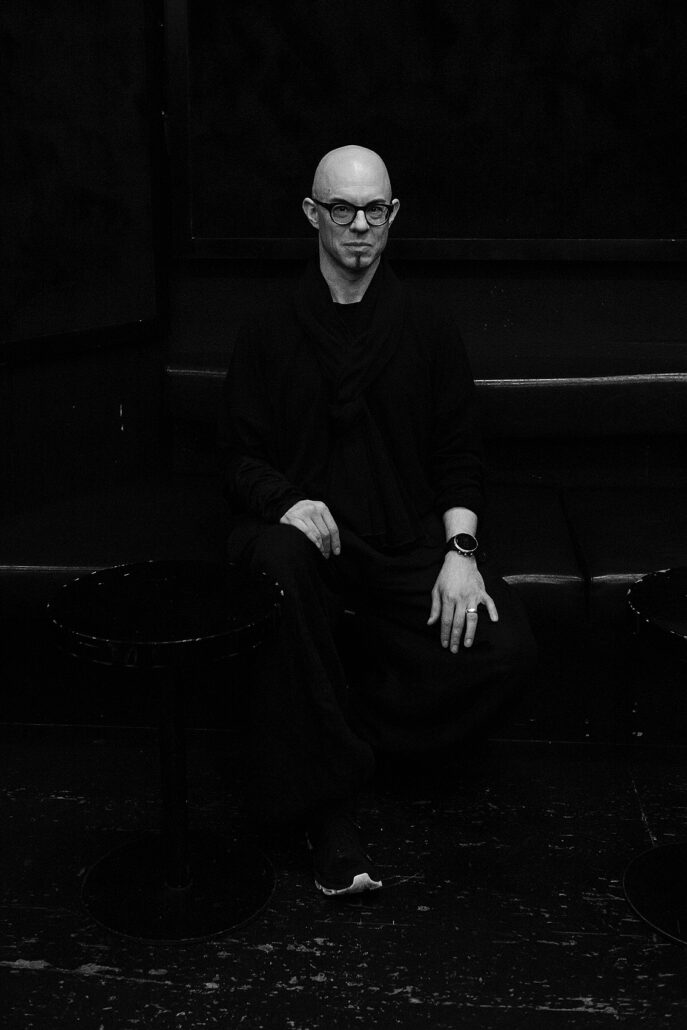
.
.
.
.
.
.
.
.
Art by Hannah Rouland, @hannah.tor.art
THE SILENT MIND IS OPEN:
Swiss Pianist Nik Bärtsch Explains Ritual Groove Music in New Book
October 26, 2021
Photo by Claude Hofer
“Listening: Music, Movement, Mind” is the first book by Swiss Jazz pianist Nik Bärtsch.
Published over the summer by Lars Müller, it’s the first time Bärtsch has explained in detail the inner workings of his own creativity and the democratic process of the various bands he’s led for twenty years including Ronin and Mobile.
Bärtsch has been deeply influenced by Zen meditation and Aikido martial arts practices in his continued explorations of freedom, sound and performance. And he’s been inspired by a diverse array of musical realms including Bach, Japanese shakuhachi, Meshell Ndegeocello
and Brian Eno. All of this led Bärtsch to very consciously develop what he calls Ritual Groove Music. This unique and dynamic rhythm-based music is deeply sensitive at one moment and seriously grooving the next. The tempos are often fast, the patterns intricate, and Bärtsch sometimes plays the inside of the piano in very effective ways as a “percussive weapon.”
John Malkin recently spoke with Nik Bärtsch about his music and his new book “Listening: Music, Movement, Mind,” created in collaboration with his wife Andrea Pfisterer and dedicated to his three daughters Aina, Ilva and Mika.
.
.
NATURAL AUTHORITY
JM: “Tell me about the democratic process you have with your various bands. You write that it’s very important, “to combine a clear individual vision and cooperation.” You’re pointing out that sometimes artists think they need to pick one or the other.”
Nik Bärtsch: “I would call it balancing out all interests, needs and ideas. There can be the idea that this is not very fruitful when you’re looking for a clear vision. But I haven’t experienced it like this. Like in a democracy, there are people who take more responsibility and have a certain energy and maybe have certain competencies. But in our bands, I need to naturally be respected for my competencies. So, it’s a natural authority. If I try to cheat or force them or buy them in a certain sense, it doesn’t work. People need to feel respected.
There are bands who, after their shows, they talk a lot about the details of their performance. What didn’t work, what worked. And sometimes they even argue. We have an agreement that we don’t talk about mistakes right after the concert. We talk about these things at the monthly meetings. At the concert it’s kind of a holy thing that you should appreciate even when something went wrong. Especially right after the concert, when you’re still in that atmosphere. Later in the monthly meeting we talk things through and learn from it in a constructive way.”
“I consider myself first and foremost, a free citizen of planet music.” — Nik Bärtsch

Photo by Ronin Rhythm Productions..
NOT EXPLICITLY POLITICAL
JM: “I suppose people might say that your music is not political. But in a sense, all art has a relationship to society and culture.”
Nik Bärtsch: “That’s a very important point, actually. I am explicitly not explicitly political. Because I think the way we work is political. The things we offer are very political; of being community-oriented, process-oriented. They’re very respectful. Also, in a certain way, we take ourselves maybe not so serious. Our work is the focus. And the way we do that is very political and very democratic.
Sometimes artists may be more explicitly political. I don’t do that because I want the music that you hear on our records to be free, itself. I don’t want to put something onto the music that you need to read in a certain way. You need to have the freedom as a listener to react on that music however you like. And that’s a very political statement; it’s how the music is created and presented and then shared with people who then can react with their own poetic freedom.”
RITUAL GROOVE MUSIC
JM: “I like your presentation of music as a ceremony. Would you say more about Ritual Groove Music?”
Nik Bärtsch: “When I was a kid, I heard a lot of music from all kinds of different styles. When I found what I wanted to focus on, I noticed that it made no sense to give my music a style name. But more maybe a perspective; how we work and the spirit of the music and its results. Ritual Groove Music is a certain way of working, of seeing music, and creating strategies of musical performance and expression.
Ritual is a way of taking care of things that are important. We know that from a Japanese aesthetics. Repetition plays a big role. Repetition is a form of learning, and of deepening things. We have that in spiritual traditions. But we also have that in a lot of handcraft and art traditions. Even if it is a cup or something we use in everyday life. Repetition is actually the moment when you love to continue with something instead of stopping. So, it’s this kinetic moment of movement that increases your energy. That’s what groove is for me. You’re in and on the way; you cannot jump out. Music is a way of hearing and experiencing life. So, I found Ritual Groove Music as a flow that is precise enough, but also open enough.”

Photo by Ronin Rhythm Productions
THE SILENT MIND IS OPEN
JM: “You write that, “In playing live music we face the same challenges as in Zen meditation, with its curious philosophy of constantly reinventing yourself by making yourself disappear.” And, “the silent mind is open to the whole hearing horizon.”
Nik Bärtsch: “I find it interesting that in music studies we talk so often about technical and musicology aspects. But rarely talk about performing aspects. I learned mainly in Aikido training that the now changes when you perform. It’s like this famous moment when a student tells you; “At home I could play it, but now during the lesson it doesn’t work anymore.” This has nothing to do with bad training. It just has to do with the moment of performing in a community. You’re not performing for yourself. You’re performing for, and with, somebody who is listening. This has to do with this moment of now.
And this is what we learn in the very focused Zen meditation form, the practical idea of meditating. And we learn it in martial arts. But you can also find it in sports and theater, even in the circus. In a lot of now-performing moments. In the world of sports, people have coaches for these things. But music schools, rarely.
Without martial arts and Zen meditation I could not perform like this. It means to learn to deal with these different energies so that you finally can enjoy the performance! And not our own stress, constantly. And be able to connect to your colleagues onstage and to the audience in the space. For me, the audience is an integral part of the performance; the audience is a friend. It’s not an enemy. The concert is an energy and a positive challenge that we should appreciate. But we also need to stay connected during the whole performance.”
IMPROVISATION & OUT-FOXING YOURSELF
JM: “Everything you’re saying seems very important with regard to improvisation. People often forget that Bach, Beethoven, Chopin and Mozart excelled at improvising and some of their pieces were originally improvised.”
Nik Bärtsch: “Exactly. It’s not enough to just know your own style. You need strategies of out-foxing yourself! (laughter) And that’s an evolutionary energy. You need stability and knowledge, but you need also the spirit of improvisation of out-foxing yourself to create new perspectives. The beautiful thing in improvisation is that it’s very now-happening. So, you need to somehow be faster than yourself! (laughter) And this paradox I find fascinating. And it’s trainable too. You can train to trust this momentum of being faster than yourself. Which means you have to learn also to make yourself disappear. And we know that from Zen. You know, the ego is not necessarily something bad. The ego is just one of the different aspects of being. But in some moments, it doesn’t help us! (laughter) And in these moments, we need to learn to avoid it. That’s very simple. But that’s one of the major techniques we can learn from Zen. This paradox of both training and letting everything go is such a beautiful thing, and probably an essential energy in our lives.”
This interview with Nik Bärtsch was originally broadcast on September 16, 2021 on “Transformation Highway” with John Malkin on KZSC 88.1 FM / kzsc.org.
———— —————— ————– —————- —————– ————
———— —————— ————– —————- —————– ————
———— —————— ————– —————- —————– ————


